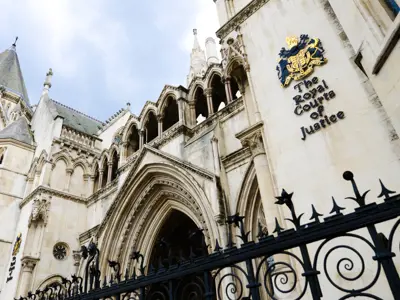
Reparations for British chattel enslavement: time to pardon Guyana abolitionists?
Trainee solicitor Walker Syachalinga argues that the British government has a responsibility to pardon those involved in an uprising 200 years ago on a British-owned plantation on which enslaved Africans were forced to work.
Posted on 18 August 2023
On 18 August 1823, enslaved people on a Demerara plantation (now Guyana) owned by a British MP, Sir John Gladstone, started a rebellion against their enslavers demanding better conditions and the abolition of chattel enslavement. In response, the governor declared martial law and swiftly put down the rebellion with convicted ringleaders either executed or exiled.
In February 2022, Shadow Foreign Secretary David Lammy wrote to then Justice Secretary, Dominic Raab asking him to pardon 73 of the abolitionists involved in the rebellion. The Justice Secretary declined to do so, claiming that responsibility for doing so had passed to Guyana’s government after independence. I believe that because the rebellion was instigated by the failure to implement House of Commons resolutions on the welfare of enslaved people, the responsibility to pardon the abolitionists remains with the British government.
Background to the Demerara Rebellion
On 28 May 1823, the Colonial Office had directed the governor of Guyana to implement a House of Commons resolution to ameliorate the treatment of enslaved people by prohibiting the flogging of enslaved females, the use of the sound of the whip to force the enslaved to work and carrying and displaying the whip in the field. The governor failed to implement the resolution.
When news of the House of Commons resolutions reached Demerara, enslaved abolitionists Jack Gladstone and Quamina Gladstone, and a missionary from the London Missionary Society John Smith, started a rebellion to demand the implementation of the measures. They were driven by the belief that “God had made them of the same flesh and blood as the whites…” Although unsuccessful, the rebellion has been credited for speeding up emancipation, which took place some 10 years later in 1833.
A case of déjà vu?
In response to David Lammy’s request that the abolitionists be pardoned, the then Justice Secretary stated that following Guyana gaining independence in 1966 and becoming a republic in 1970, it would be for its president to grant such pardons. That response is a common refrain of the British government in cases involving historical atrocities in British colonies, and a reflection of its practice of passing legal responsibility for the omissions and failures of its colonial employees to governments formed since independence.
In the Mau Mau case, relating to British involvement in the torture, rape, castration and severe beatings of the Mau Mau in the Kenya Emergency of 1954 – 1959, the UK government similarly argued that responsibility for its involvement had “passed “seamlessly” to the new independent government”.
However, the judge found that incriminating “materials were removed from Kenya upon independence precisely because of their potential to embarrass the UK Government” and that there was a triable case that the UK Government was “capable of participating in its own right in the instigation of a system” as alleged by the Claimants.
Following that finding, the then Foreign Secretary William Hague made a statement of regret to Parliament on 6 June 2013 which was followed by a settlement on behalf of 5,228 Kenyan claimants, represented by Leigh Day.
British instigation of the Demerara Rebellion
In the Mau Mau case, the judge’s rejection of the idea that liability had passed to the government of Kenya was based on findings that what was going on in Kenya was instigated by the Colonial Office in London. That set of facts is analogous to the situation giving rise to the Demerara Rebellion.
In a letter published in the Liverpool Courier on 5 November 1823, Sir John Gladstone MP, on whose plantation the rebellion started, declared that the causes of the rebellion originated in Britain. That view is echoed by modern historians and reasonable given that the Colonial Office directed the governor of Guyana to implement the House of Commons resolutions. When the governor failed to do so, abolitionist enslaved people rebelled. In that context, the governor’s failure should vicariously be attributed to those instructing him.
In addition, historical records show that the Colonial Office had much control over the treatment of enslaved people in Guyana and the surrounding areas. For instance, in neighbouring Berbice (also part of Guyana) the colonial secretary, Lord Bathurst, replaced the governor and his council after they failed to implement amelioration laws. Quite clearly, important decisions relating to the condition of enslaved people were made in Whitehall at the Colonial Office and in the House of Commons.
Conclusion
As we mark the 200-year anniversary of the Demerara Rebellion, the least the British government can do is to posthumously pardon those who were convicted and executed as a result of events “instigated by British policies”. As calls for reparations intensify and in a context where other European states formerly involved in chattel enslavement, such as Portugal and the Netherlands are expressing regret and issuing apologies, the British government’s intransigence is out of step with the recognition of legal and moral wrongs.

Walker Syachalinga
Walker is an associate solicitor in the international and groups claims department



